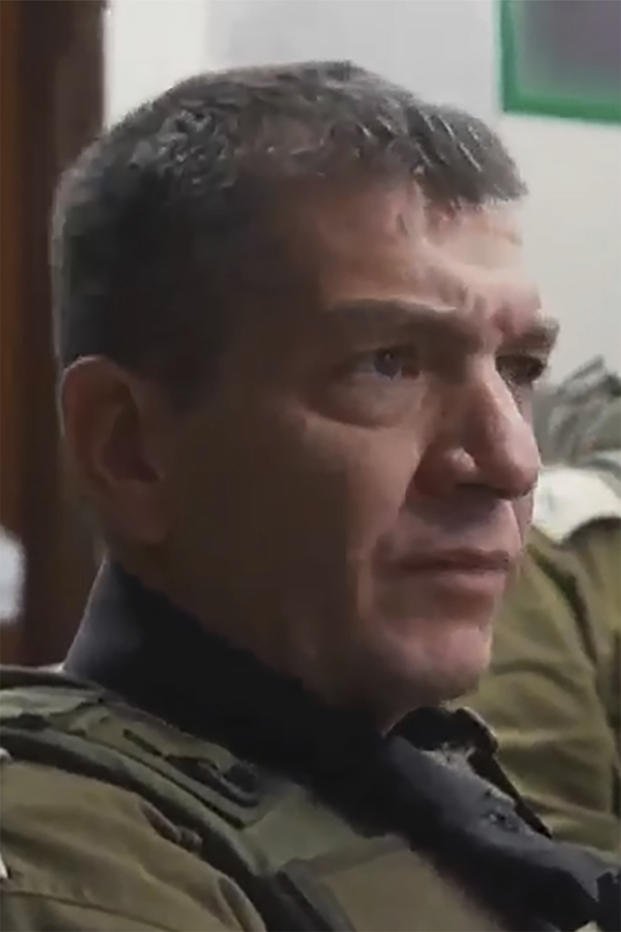A major purge of senior Israeli military and intelligence officials is underway over their failure to prevent the devastating Oct. 7 Hamas attack.
On Monday, Maj. Gen. Aharon Haliva, the head of the Israel Defense Forces (IDF) intelligence branch, resigned. He’s the first senior Israeli official to step down for failing to prevent the assault, in which Hamas militants killed some 1,200 Israelis and took more than 250 others hostage in the worst terrorist attack in Israel’s history.
But he won’t be the last. As military investigators deepen their internal probe into the events surrounding the Oct. 7 attack, many others in the IDF’s intelligence branch, as well as Israel’s Shin Bet domestic intelligence agency, are expected to leave their posts in disgrace, knowledgeable Israeli sources told SpyTalk.
“The intelligence directorate under my command did not live up to the task we were entrusted with,” Haliva wrote in his anguished resignation letter. “I carry that black day with me ever since, day after day, night after night. I will carry the horrible pain of the war with me forever.”
Haliva’s resignation is expected to set off an avalanche of departures from the top echelons of Israel’s military and intelligence establishments, these sources say. Others who are expected to resign in the following months include Defense Minister Yoav Gallant; Chief of Staff Lt. Gen. Herzl Halevi, the IDF’s top commanding officer; and Shin Bet chief Ronen Bar. All have publicly accepted responsibility for the Oct. 7 failure. But have continued to serve amid the demands of Israel’s war against Hamas, now in its sixth month.
“It’s not clear how quickly it will happen, but I’m sure more resignations will come,” Yossi Kucik, who served as chief of staff for former Prime Minister Ehud Barak, said in a telephone interview.
According to Amos Harel, the military correspondent for the daily Ha’aretz, others who played a role in the failures of Oct. 7 are poised to leave their posts, including several senior Shin Bet officials, the current and previous commander of IDF’s Southern command, the head of the IDF’s Operations Division, and the commander of the Gaza Division
But a former senior government official says that lawyers for these officers are urging them to remain in their posts until the current ruling rightwing coalition leaves office and a new, more moderate government takes office.
“The problem is that if these people resign now, Bibi will replace them with radical rightwing ass-kissers,” the former senior official told SpyTalk, using Prime Minister Benjamin Netanyahu’s nickname. The former official asked to remain anonymous to discuss sensitive matters.
Israel’s next elections are in 2026, but many expect Netanyahu’s government will fall before then, forcing a new vote.
Eavesdropping Unit Purge
Earlier this month, the commander of Israel’s vaunted Unit 8200, the IDF’s powerful electronic and cyber surveillance agency, comparable to the U.S. National Security Agency, was forced to step down.
The resignation of Brig. Gen. Yossi Sariel, whose identity had been a closely guarded secret, followed an April 5 report in Britain’s Guardian newspaper, which revealed that a book about the military uses of artificial intelligence that Sariel published on Amazon in 2021, using only the author’s initials “Y.S.”, had left a digital trail that led to a private Google account created in his name. The paper said the trail also revealed Sariel’s “unique ID and links to the account's maps and calendar profiles.”
An IDF spokesman confirmed the unmasking of Sariel, describing the book’s exposure of the spy chief’s identity as “a mistake.” But even before this security lapse, Unit 8200 under Sariel’s command had come under fire for its failure to foresee and prevent the Oct. 7 Hamas attack.
Also on Monday, Maj. Gen. Yehuda Fox, the commander of Israel’s central command, which includes the occupied West Bank, notified his superiors that he would step down at the end of his three-year term in August. According to Israeli press reports, Fox said he told close associates that he saw himself as part of the IDF General Staff’s failures on Oct. 7 and was therefore honor-bound to step down.
Fox’s command has come under scrutiny by IDF investigators probing the events surrounding the Hamas attack. These included several instances in which IDF soldiers under Fox stood by or participated in violent attacks on West Bank Palestinian civilians.
Such human rights violations by Israeli forces in the West Bank, as well as others in Gaza, where Israel’s war against Hamas has killed some 34,000 Palestinians, according to the enclave’s Hamas-run Health Ministry, were included in the State Department’s annual human rights report, which was released on Monday.
In what would be an unprecedented move, the Biden administration is expected to slap sanctions on a special IDF unit for human rights violations in the West Bank, Axios reported last week. The sanctions would prohibit the unit from receiving any kind of U.S. military assistance or training under a 1997 law that prohibits U.S. foreign and military aid to foreign military, security and police units that have committed human rights violations.
The unit, called Netzah Yehuda, is a battalion made up of ultra-orthodox men and radical right wing settlers who were deemed unacceptable by all other IDF combat units.
The State Department began its investigation of Netzah Yehuda in 2022 after its soldiers were involved in numerous violent incidents against Palestinian civilians in the West Bank. In one incident, Netzah Yehuda soldiers arrested Omar Assad, an 80-year-old Palestinian American, at a checkpoint near his village, claiming he refused to be searched. In response, the soldiers handcuffed and gagged him, then left him on the ground in the cold. He was found dead a few hours later.
Months ago, a State Department team investigating alleged foreign human rights violations based on the 1997 law recommended that Secretary of State Antony Blinken sanction several Israel military and police units that operate in the West Bank. Asked about the team's recommendations at a news conference in Italy last Friday, Blinken said he had reached determinations based on the team’s investigation and that they would be made public “in the days ahead.”
This article first appeared on Spytalk.co.











